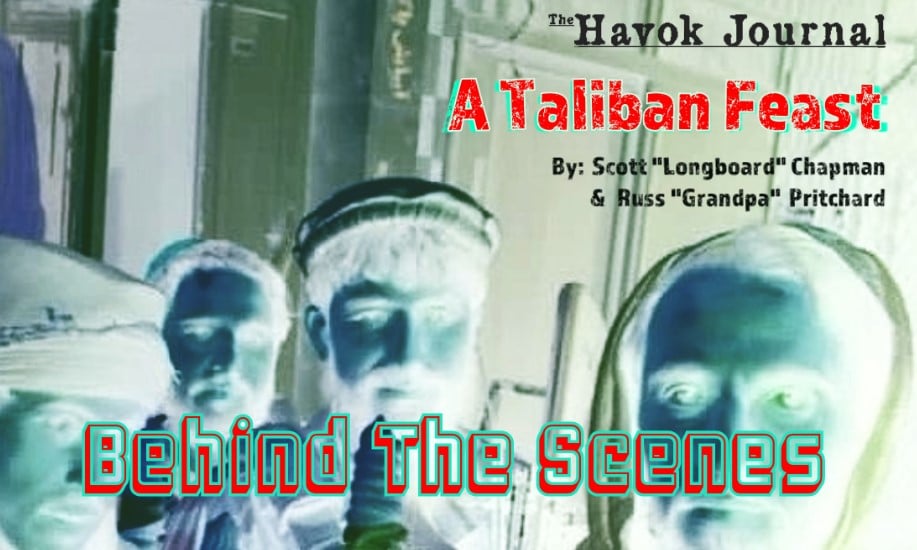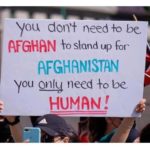by Scott “Longboard” Chapman & Russ “Grandpa” Pritchard
Context makes a story come to life. The goal of this article is to apprise readers of a real-time humanitarian operation that resulted in an unplanned network of stranded Allies in Afghanistan. A self-funded ‘Post Afghan-American War Project’ founded by two authors, Russ “Grandpa” Pritchard and Scott Chapman, initially sought to raise awareness of vulnerable Afghans. The fruits of our labor created a diverse community of Afghans who were no longer able to work under Taliban authority. The recently published article titled, “A Taliban Feast” is a watered-down analysis report masquerading as a letter from the Taliban. We implore you to follow us ‘behind the scenes,’ where we’ll expose you to the unchecked monster growing abroad and in our own backyards.
Since the fall of Kabul, Pritchard and Chapman’s relentless efforts to feed Afghans, provide 24/7 medical care, and provide a conduit to report happenings in a media-suppressed Afghanistan, have spread a feeling of hope throughout the failed country.
Multiple Alphabet Agencies from the U.S., and our international Alphabet connections, convey the same query to Pritchard; “Why you?” In a single word, ‘loyalty.’ Pritchard often explains to the Intelligence community when contacted, “We established the type of loyalty you never knew possible.”
We earned their loyalty because we never lied to our stranded Allies, we were always available, and we always kept our promises; unlike career-focused government employees. This is the type of loyalty one cannot purchase. The story of Infant Abdul is a small part of the answer to the question, “Why are they so loyal to you?” Though Infant Abdul did not survive the night, his passing gave birth to the “Afghan Medical Corps.”
The medical side of our project developed organically through our efforts to evacuate people. As time passed and we helped to shuffle people from safehouse to safehouse, medical emergencies cropped up. We solved those new challenges because it was a natural thing to do. Along the process, we met a couple of doctors also in hiding.
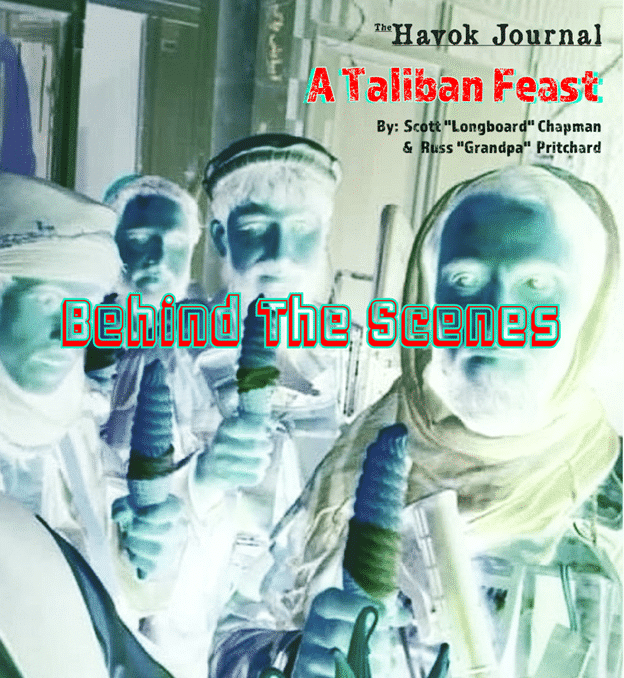
“The Afghan Medical Corps” is an underground movement that began with a single phone call after the tragic loss of Infant Abdul. Russ reached out to one doctor one night and I said, “Hey, can you call this person? They’re sick. I know you’re in hiding, and they’re in hiding too. Maybe if you each use fake names, we can work something out.” At 3:30 in the morning, this doctor and Russ came up with the idea of the “Afghan Medical Corps,” which connects Afghan doctors in Afghanistan to Afghan patients.
Since 99.9% of our patients are in hiding, we developed the “Afghan Medical Corps” to provide proper medical care in the absence of normalcy. As vulnerable Afghans, they cannot find physicians safely. They’re indigent because they lost their jobs and cannot work. Since mid-September, 2022, we’ve grown to over 270 doctors that assist and have relationships with six hospitals. Pritchard is humble and proclaims he’s just a “glorified telephone operator.” We connect people to doctors and hospitals.
If you were pregnant, you stopped prenatal care when the Taliban took over on August 15th, 2021. We’ve experienced a lot of stillborns in the field. So, we came up with a Safe Delivery Program, and that is one of the essences of the Afghan Medical Corps.
We have a very strong relationship with a maternity hospital in Afghanistan we’re able to send patients for prenatal care, safe deliveries, and postpartum care. We’ve completed hundreds of safe deliveries that way. We stopped counting after 1,400 babies because the program now runs itself. That’s something Pritchard and Chapman are very proud of. The Afghan Medical Corps is nothing more than an underground movement operating like an American healthcare network.
The process is streamlined and straightforward. After you’re admitted into the system, we triage you with an Afghan doctor on the ground. He either helps you or refers you to a specialist. From there, we reach out to the hospitals if tests or follow-up services are needed.
Our maternal services included pre-natal care, regular checkups during pregnancy, and post-natal management. Our record number is 15 babies delivered in one day. We coordinated the delivery of babies in abandoned buildings, dark alleys, or bombed-out basements through the first winter. Not for the fruits of loyalty among Afghans, but because it was the right thing to do.
Our healthcare project did not end with the needs of pregnant mothers. We respond to all types of emergency medical situations. Including heart attacks, strokes, renal failure, diabetes, and various forms of trauma. Unfortunately, in the absence of regular healthcare, chronic illnesses quickly become acute.
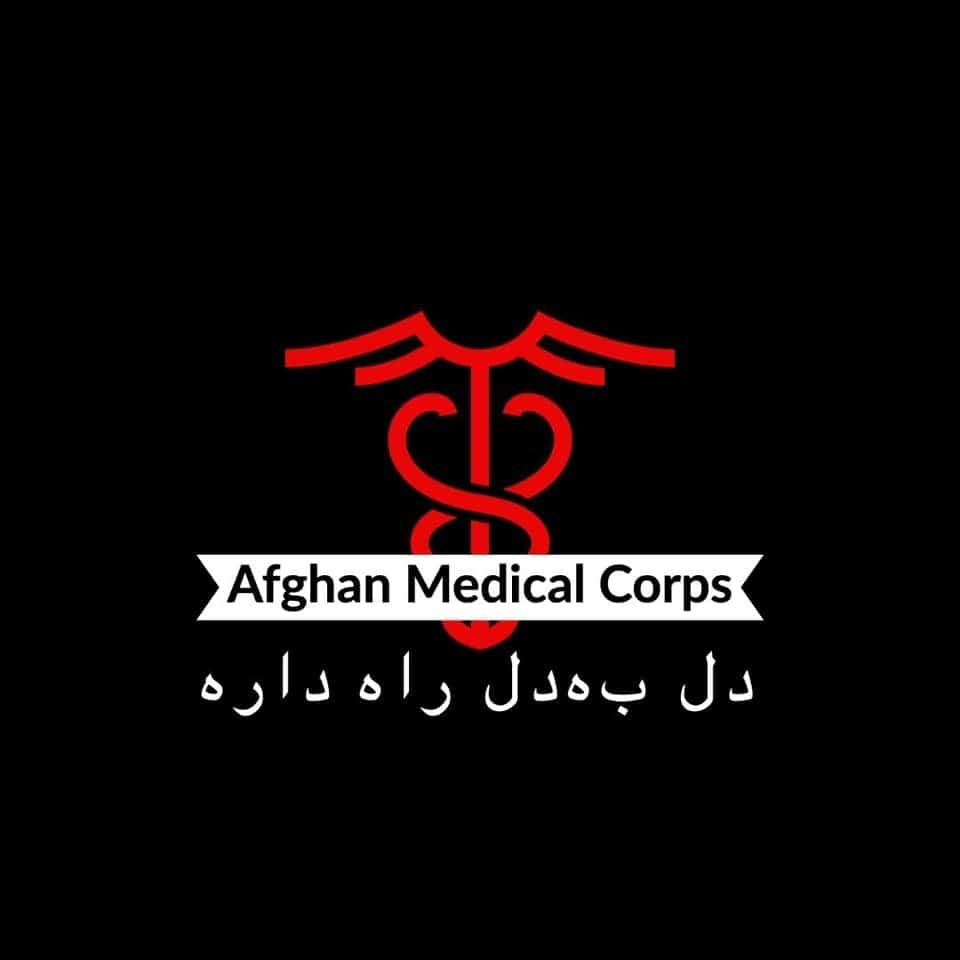
An offshoot from the Afghan Medical Corps’ success was a safe way to deliver food to our stranded Allies. By May of 2022, we were feeding over 8,000 people per month. The demand for food continues to grow. As of the publication date of this article, the U.N. states 94% of Afghan families face food shortages.
Chapman, a featured author with The Havok Journal, recently wrote to the editor-in-chief and said, “It feels strange to accidentally set up an autonomous healthcare network for Afghans. We did it for free and in our spare time because they love our country as much as we do.” Chapman continued, “If not me, who else will make my life interesting? It’s a story that needs to be told.”
Every sentence written in “A Taliban Feast” has a personal story to accompany the horrors happening in Afghanistan. Each story is confirmed through open-source intelligence (OSINT) to protect our vast networks [of vulnerable Afghans]. The bulk of the information delivered to Pritchard and Chapman cannot be published; as it will be a direct arrow that points back to our valued friends. It’s vital we protect our loyal Allies.
“A Taliban Feast” represents a minute fraction of the volume of the unsolicited intelligence that’s poured in over the past two years concerning the Taliban’s focused recruiting efforts inside the U.S., their unreported growing military strength, and their Plans and Intentions throughout the region. Our foreign Alphabet friends express concern over the “willful ignorance” of the growing threat on U.S. soil.
“A Taliban Feast” is laced with layers of covert messages to our stranded Allies. It’s a multi-layered story where every detail is a deliberate message or subtle nod to the friends of Grandpa, a name bestowed upon Russ by grateful Afghans. As soon as the article began to circulate in Afghanistan, a universal message of hope began to reverberate back to Chapman and Pritchard. The message to our stranded Allies was delivered and their response was received. “You are not forgotten” was understood by Afghans; loud and clear.
The Havok Journal was the first to publish “A Taliban Feast.” Chapman kept a steady watch in the comments section on Havok’s Instagram page to help steer the narrative of the story in the intended direction. We anticipated some bruised egos because the article was critical of American might, but Chapman observed a larger than anticipated percentage of “chest-pounding” in the comment section.
It was a normal American bravado response to an article thought to be written by the Taliban. The anger in the comment section signaled to Chapman that Americans are not indifferent to the horrors experienced by our Allies or the Taliban’s growing strength.
Like Orson Welles’s 1938 classic, War of the Worlds, Pritchard and Chapman’s article convinced readers it was written by a Taliban military officer. Not just any member of the Taliban, though. Chapman wrote the article three different ways until he landed on the right perspective.
Two years ago, the original article in this series, titled “Written In Taliban,” was written from the perspective of an immature Taliban fighter who released 20 years of pent-up rage. As a creative play on perspective, “A Taliban Feast” is written from the position of a seasoned Taliban General with wisdom and experience.
We must then go back two years to understand the chain of events that thrust Pritchard and Chapman center stage while a humanitarian disaster unfolded in Afghanistan. August 15th, 2023 notes the two-year anniversary of the fall of Kabul. The date also marks the two-year anniversary of a viral article that shook the foundation of our armed forces, it spit in the eye of apathetic Americans and thrust a rigid middle finger in the face of the Military Industrial Complex. Titled, “Written in Taliban,” two Army Rangers with 26 combined combat deployments served a heaping dose of sour medicine down the throats of unsuspecting readers while the Taliban surged through the failed capital city of Kabul, Afghanistan.
Of course, the authors know ‘Taliban’ isn’t a language to be ‘written in.’ Originally co-authored by Matthew “Griff” Griffin and Scott Chapman, the title is a subtle way to foreshadow how the article eviscerates the American General Officers and “self-serving politicians” for never understanding the Taliban or the war in Afghanistan.
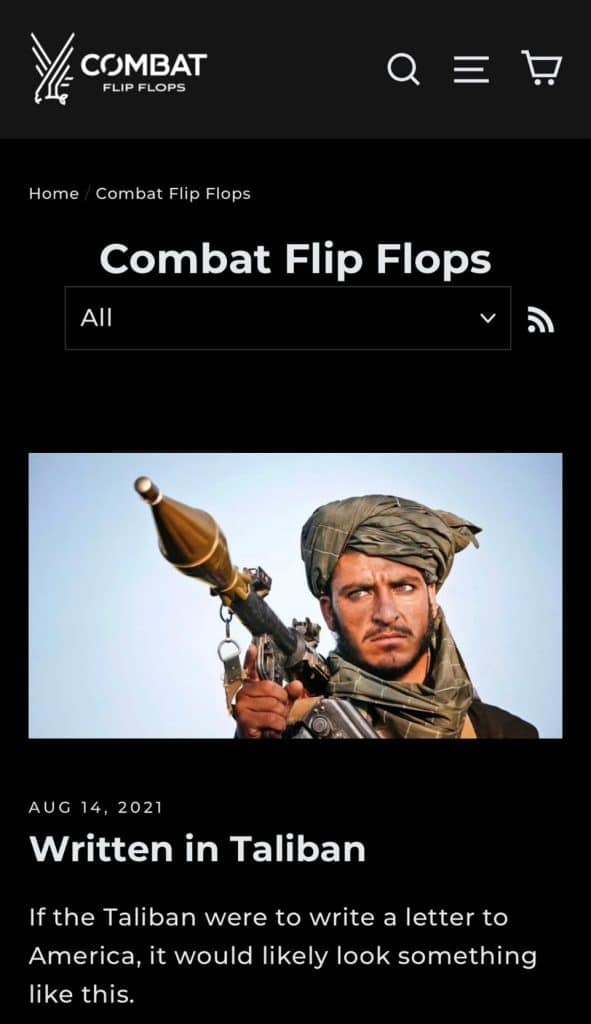
The unchallenged seizure of Hamid Karzai International Airport (HKIA) was a tragic and humiliating event for Griffin and Chapman, who spent two decades fighting to keep the Taliban out of power.
As an outlet to express disgust over the disastrous withdrawal from Afghanistan, Griffin and Chapman co-authored “Written in Taliban” to force an uncomfortable perspective often ignored by the American public. The article is written from the perspective of the Taliban. This perspective allowed Griffin and Chapman an unrestricted avenue to vent disgust over the state of our country. It soon became a black eye for America all around the world.
The day after “Written in Taliban” was originally published, former Blackwater founder Eric Prince linked the viral article when commenting on United States Navy Admiral James G. Stavridis’s Facebook page stating, “You and your other 4 star alumni are part of the problem. You had unlimited resources and you delivered carnage.” Mr. Prince’s comment, along with 204 other comments, have since been removed from the Admiral’s Facebook post.

On 18 Aug 2021, an unnamed source reported to Griff that the ‘Head of Pentagon Strategy’ stood in front of the Joint Chiefs of Staff (JCS) in the Pentagon and read “Written in Taliban” out loud, unobstructed, to a dead quiet room. The JCS is the body of the most senior uniformed leaders within the Department of Defense (DoD), which advises the President of the United States, the Secretary of Defense, the Homeland Security Council, and the National Security Council on military matters.
Like the Kennedy assassination, Challenger Shuttle explosion, and World Trade Center collapse, readers remember where they were when they read this incendiary article for the first time. This is where Russ “Grandpa” Pritchard entered the conversation. However, Afghans didn’t give Russ the moniker ‘Grandpa’ for another year.
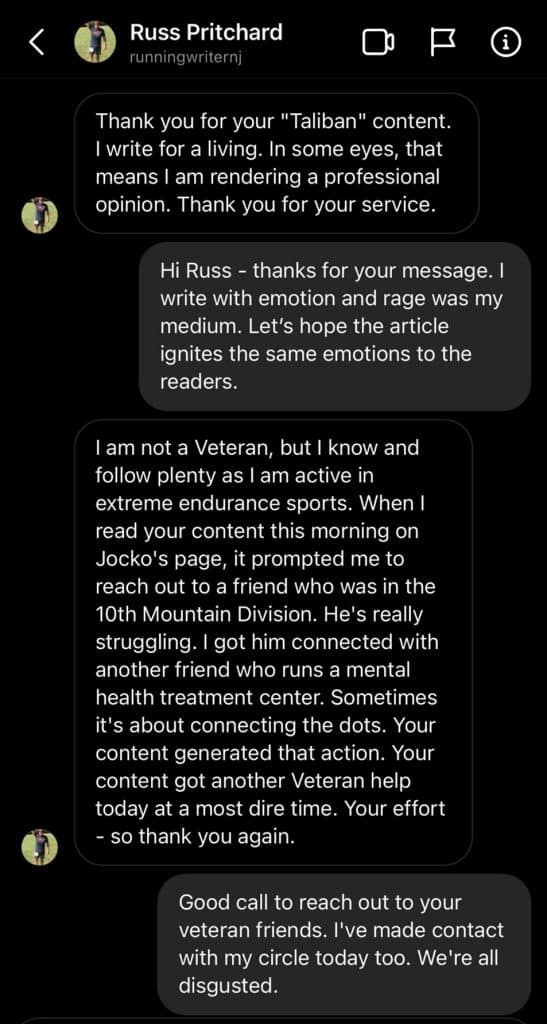
In the early months after the fall of Kabul, Chapman and Pritchard collaborated with a non-profit organization named “Operation Freedom Birds,” to write a story a day about our stranded Allies. A sample of those stories can be found here. Chapman and Pritchard parted ways from OFB after Pritchard received calls from angry donors stating funds sent to OFB were not released to Afghans in need.
After the failure of OFB to release funds for Afghans to survive the winter, Pritchard formed a food delivery network to ensure our Allies survived their first winter under Taliban rule. Tragically, many Afghans succumbed to hunger or froze to death that winter. Some of the stories we wrote about our former Allies and their families turned out to be their final testaments.
OFB has since changed its name to, “Freedom Bird Foundation.” The refusal to release donor funds was the final act of a long list of broken promises pledged by “Operation Freedom Birds.” The leader of OFB once claimed he brought “agency guys” into the non-profit. Later, it was learned the leader of OFB was a Republican political strategist.
Chapman often says Russ’s greatest strength is his ‘outside the box’ problem-solving perspective. Chapman explains, “Every idea is ‘outside the box’ because he didn’t even know where Afghanistan was on the map when he first met me.” His inexperience in a convoluted military quagmire resulted in success after success supporting our Allies. An encounter at the refugee camp at Ft. Dix three months after the fall of Kabul foreshadowed the unpredictable maelstrom that would affect our personal lives going forward.
Pritchard, invited to the refugee camp in November 2021, to orchestrate medical care for an injured Afghan pilot was met with consternation by the active U.S. military running the facility. Russ recalls one comical exchange with an Army Colonel he’ll never forget.
At one point, a U.S. Army Colonel approached Pritchard, one of three taking him on a tour of the Afghan refugee camp housing 15,000 Afghans from the recent Kabul airlift. In an awkward moment, the Colonel cornered Pritchard in a private room and said, “Writer from New Jersey huh? That’s a pretty weak cover. We all know you’re OGA.” Pritchard responded, “But I’m not.” The Col. continued, “Now I know you are because you wouldn’t say you weren’t unless you were.”
It was the argument of a four-year-old, and Russ didn’t say anything further. Within thirty minutes of this exchange, two Colonels and one Lieutenant Colonel would push lists into Russ’s pocket of people they wanted evacuated from Afghanistan. The desperation of high-ranking U.S. military officers left Russ aware there was no military plan to evacuate our Allies.
As authors, Chapman and Pritchard often struggle with the juxtaposition between their daily lives as normal American citizens and the surreal nature of the humanitarian crisis on the other end of their phones. While we attend birthday parties, sit with family in the hospital, or run daily errands, the mission in Afghanistan continues. We often find ourselves tackling complex logistical challenges during the in-between moments of daily life. Russ recalls a moment in time when he received gruesome pictures of a tortured former Afghan Commando who needed emergency medical care. He was out to dinner with friends recognizing an anniversary when he received a deluge of texts from Afghanistan. Russ recalls looking around the restaurant and saying to himself, “I know I’m the only person here dealing with this kind of problem.”
Our Afghan friends who live abroad, and inside the United States, give Chapman and Pritchard dire warnings of the Taliban’s growing strength on our home soil, and overseas. GITMO alumni are now in leading Taliban positions in Afghanistan. At home, the First Amendment protects the Taliban when they dance in our streets and fly their flags on our highways.
The State Department’s website explains the U.S. Government’s official position concerning Taliban relations, “On February 29, 2020, the United States and the Taliban signed the Doha Agreement, which led to the August 30, 2021, withdrawal of U.S. and Allied forces from Afghanistan. Since the forcible takeover by the Taliban in August 2021, culminating in the fall of Kabul on August 15, the United States has shifted to a position of pragmatic engagement in Afghanistan. The United States has not yet made a decision as to whether to recognize the Taliban or any other entity as the Government of Afghanistan or as part of such a government.” It should be noted the Doha Agreement did not include a Ghani-led Afghan government.
According to the Special Inspector General for the Reconstruction of Afghanistan (SIGAR) report that was released in Spring of 2023, the United States has sent the Taliban $8 Billion U.S. tax dollars since August 2021. That translates to $40 million dollars per week over the last two years.
The only thing that thrives in Afghanistan; are Afghans. Afghanistan has conquered or survived every invading army since Genghis Khan in the 1400s. They all fell, then collapsed under the weight of their own consequences. Afghanistan is the graveyard of empires. “The Taliban guarded the gates to HKIA. They let in who they wanted to go to America. The foxes controlled the doors to the hen house. They are here. Make no mistake. Terrorists are here and forming cells or strengthening existing ones.” – An anonymous Afghan Col. living in the U.S.
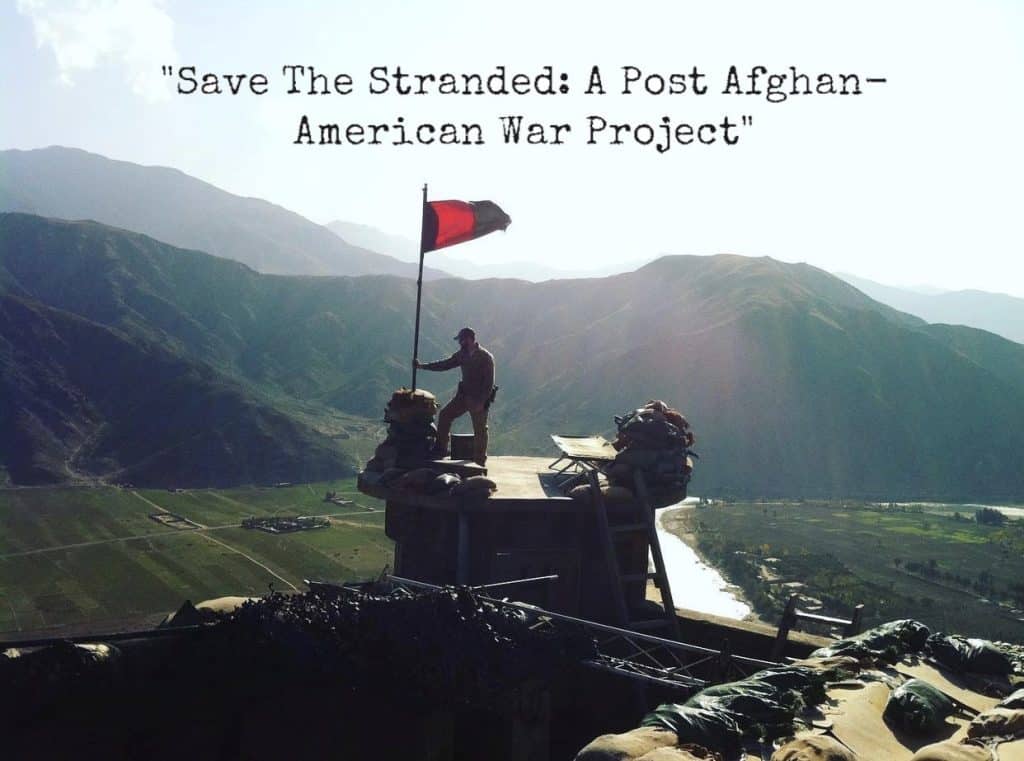
___________________
Scott “Longboard” Chapman served in 2nd Battalion 75th Ranger Regiment from 2001-2005. He deployed to Iraq during the 2003 invasion and then to the Afghan theatre 4 times. After the military, Scott worked in the executive protection space and then as an OGA security contractor. Providing security support to the Intelligence community where he deployed 17 times; mostly to the Forward Operating Bases (FOB). He provided security support for Intelligence personnel and operations. Scott continues to work in the contract security area.
Russ “Grandpa” Pritchard is an independent journalist, professional writer, former Chief Marketing Officer, flight medic, triathlete, husband, father, and grandfather. Russ is the co-founder of the Afghan Medical Corps and the Afghan-American Development Group.
As the Voice of the Veteran Community, The Havok Journal seeks to publish a variety of perspectives on a number of sensitive subjects. Unless specifically noted otherwise, nothing we publish is an official point of view of The Havok Journal or any part of the U.S. government.
Buy Me A Coffee
The Havok Journal seeks to serve as a voice of the Veteran and First Responder communities through a focus on current affairs and articles of interest to the public in general, and the veteran community in particular. We strive to offer timely, current, and informative content, with the occasional piece focused on entertainment. We are continually expanding and striving to improve the readers’ experience.
© 2024 The Havok Journal
The Havok Journal welcomes re-posting of our original content as long as it is done in compliance with our Terms of Use.
